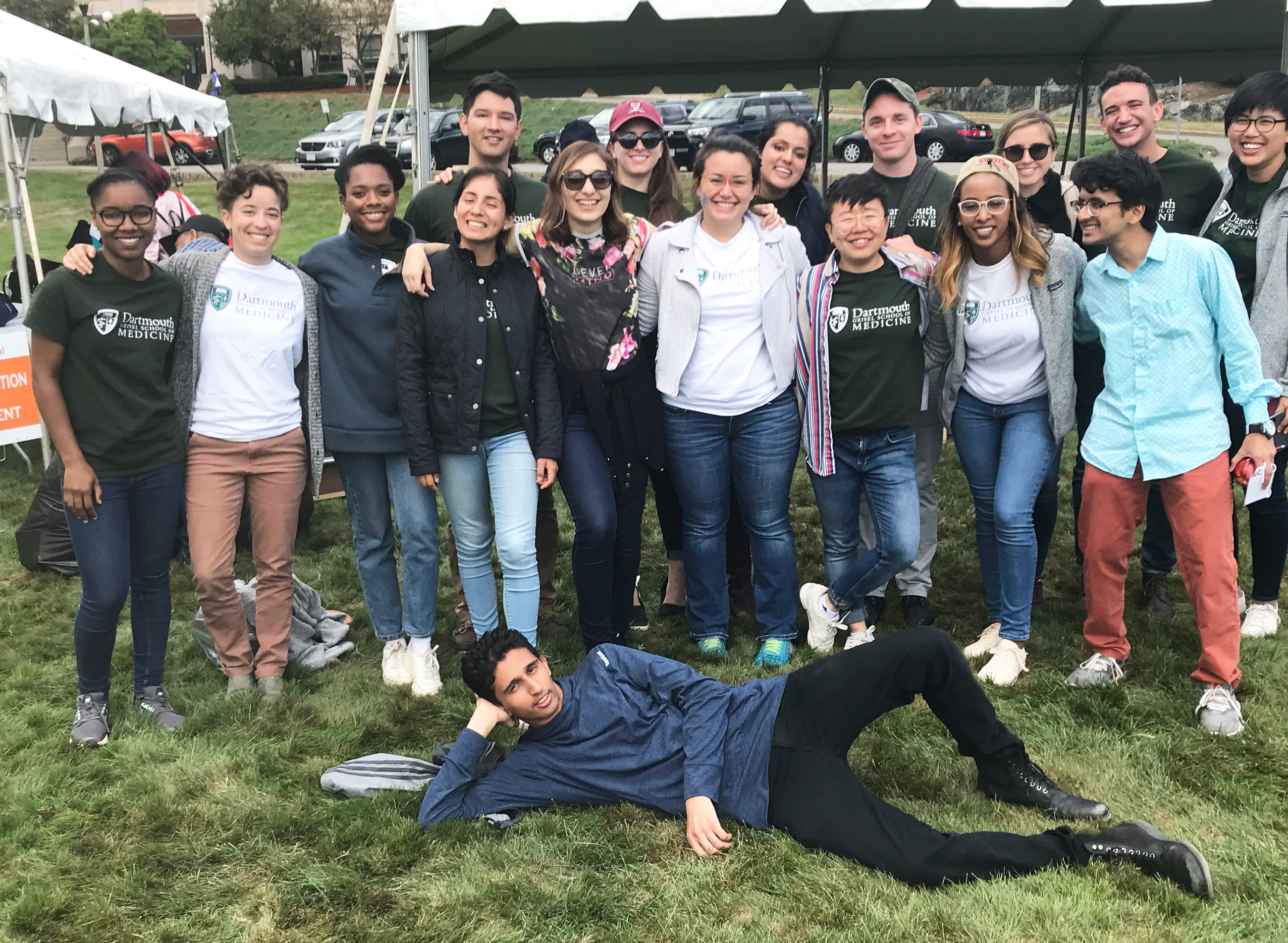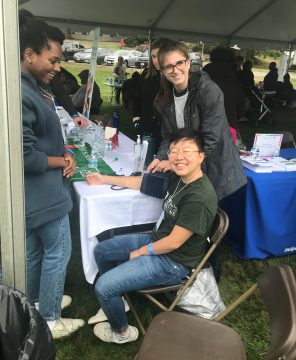Isabelle Yang ’22 knows what it takes to both provide and improve support for a vulnerable urban population. As an undergraduate, she was a founding staff member of Y2Y Harvard Square, a non-profit program providing overnight shelter and case management services to homeless young adults ages 18-24 in Greater Boston.
Her dedication to improving healthcare systems for vulnerable urban patient communities is the driving force behind her involvement in Geisel’s Urban Health Scholars (UHS)—a group of medical students who care deeply about marginalized communities and healthcare disparities.
As this year’s UHS director, Yang planned a weekend visit to Boston, MA in order for the scholars to gain a better understanding of the unique medical challenges facing urban communities. This year, for the first time, Geisel’s Global Health Scholars joined their peers for the annual visit.
“The reason we take these trips, is to immerse ourselves in the city and ground our medical education in real and diverse patient communities.”

L to R, back: Paolo Ramirez ’23, Mia Bertalan ’22, Arati Gangadharan ’22, Sean Turner ’23, Chelsea Shannon ’22, Ramzi Ben-Yelles ’22, Isabelle Yang ’22
L to R, middle: Leny Dias ’22, Katie Quarles Stephens ’23, Jasmine Panton ’23, Irene Vargas ’23, Bita Behrouzi ’22, Romina Almada ’23, Angie Lee ’22, Falen Demsas ’22, Rakin Ahmed ’22
Front: Haider Ghiasuddin ’23
At their first stop, the Mattapan Community Health Center (MCHC), they met with Anu Kaul, MD, MPH ’13, the chief medical officer. MCHC serves a diverse population of immigrants from Boston’s Hispanic and Cape Verdean communities, including many economically disadvantaged individuals.
Kaul gave the medical students an overview of the health center and of his work. Because MCHC is an independent community health center, he noted, they have the flexibility to test new ideas and be innovative when creating new programs and systems to better serve their patients.
“In rural areas around Dartmouth, we often hear that small hospitals and practices are closing due to financial strain, so it was inspiring to hear about a successful independent community health center,” Yang says.

The next stop, Boston Health Care for the Homeless Program (BHCHP), resonated the most with medical students. In the heart of the city, across the street from Boston Medical Center—the city’s largest safety net hospital—BHCHP offers comprehensive healthcare for medical issues for individuals experiencing homelessness. From preventative dental screening to cancer treatment, they provide care for more than 11,000 vulnerable citizens in 60 locations throughout greater Boston, as well as comprehensive housing for people recovering from medical procedures who otherwise would be back on the street.
The scholars also met with Thea James, MD, associate chief medical officer at Boston Medical Center and director of their Violence Intervention Advocacy Program, and spent time with the Dudley Square-based Alternatives for Community and Environment (ACE). A grassroots organization that works at the intersection of social and environmental justice, they learned how researchers and community activists are positively shaping the health of urban communities. ACE has been a powerful advocate for the Dudley Square and Roxbury communities, which have experienced unintended health consequences from diesel busses and construction sites containing asbestos and lead.
Meeting with staff of Y2Y Harvard Square, the scholars then toured the shelter and Yang shared with them its history and the work she had done there. Y2Y, the nation’s first student-run overnight shelter for homeless youth, is an encouraging example of what young people can do when they are determined to solve a problem.
“This was an enriching opportunity for our Urban Health Scholars and Global Health Scholars to together engage with underserved communities throughout Boston,” says Shawn O’Leary, director of Geisel’s Office for Diversity, Inclusion and Community engagement.
An intimate dinner and lively conversation with Urban Health Scholar alumni Chidi Achebe MED ’96—who hosted the dinner—Christina Amerault MED ’17, and Katherine Zeitler MED ’15 concluded the visit. Amerault and Zeitler still work with Boston’s vulnerable populations, while Achebe, as chairman and CEO of the African Integrated Development Enterprise, is bringing together international companies and expertise to address infrastructure needs on the African continent. His goal is to “improve the health of individuals and communities in Africa by creating a sustainable, integrated, patient-centered healthcare delivery system that is committed to the delivery of world class healthcare."
Yang says, “It was inspiring and humbling to meet so many down-to-earth physicians who embody like-minded values, and who took time out of their busy days to have honest and genuine conversations with us, doctors to student doctors.”